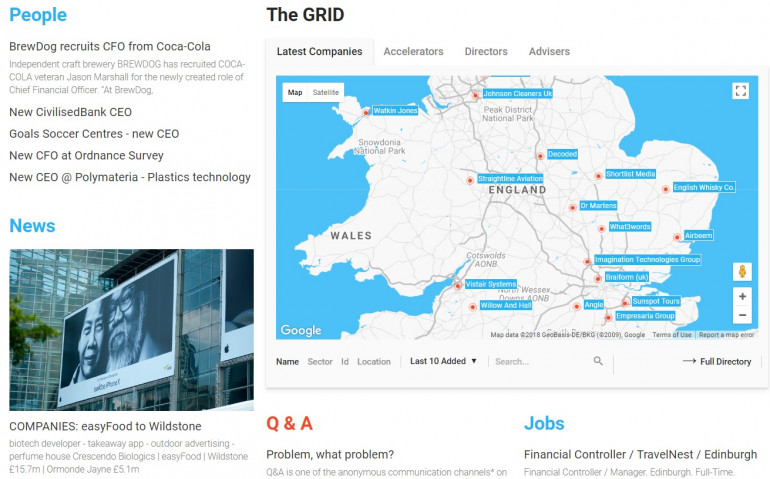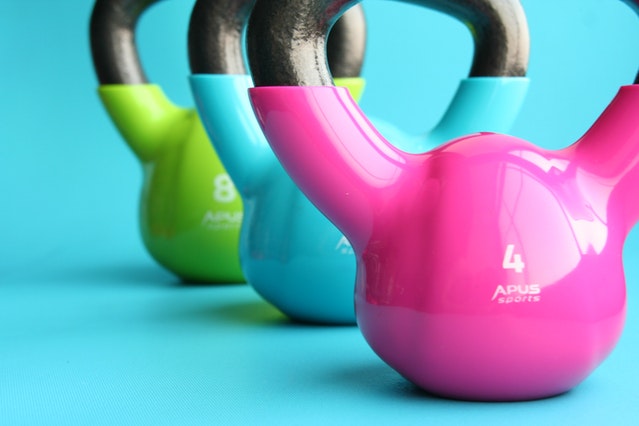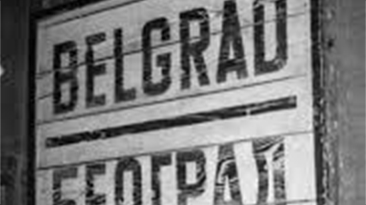Published by Directorzone Markets Ltd on June 13, 2016, 9:00 am in News, Other

News about 4 UK growth companies and/or accelerators + turnover in the GRID marketplace, 5th - 11th June 2016:
Motif Bio | Astus £135m | Time Out £30.5m | WANdisco $11m
Off-GRID: * Fuller Smith & Turner £350.5m
MOTIF BIO: $100m float for superbug treatments | Peter Evans, The Sunday Times. June 5, 2016
DZ profile: Motif Bio Plc
Business: clinical-stage biopharmaceutical company focused on developing novel antibiotics designed to be effective against serious and life-threatening infections caused by multi-drug resistant Gram-positive bacteria, including MRSA.
Location: London
Staff: run by Graham Lumsden
Financials: Made a loss of $8.5m last year. It has no revenue.
Investment: listed on AIM in April 2015
News:
1. ...has appointed US broker MTS Health Partners to float on the Nasdaq exchange later this year, which will value the company at close to $100m (£69m) ....will retain a dual listing with AIM
2. The Nasdaq listing will raise at least $20m, which Motif will use to fund clinical trials of Iclaprim, its most promising antibiotic. In early trials, Iclaprim has proved effective in treating superbugs such as MRSA. Motif is in the final phase of testing and, if approved, the medicine will go on sale next year.
3. ....is seeking to exploit a wave of interest in treatments for drug-resistant superbugs by floating on one of America’s biggest stock markets. Antibiotic-resistant infections pose a serious threat to global prosperity. In a government review last month, Treasury minister and former Goldman Sachs chief economist Lord (Jim) O’Neill said superbugs could kill 10m people a year by 2050 if new treatments were not developed.
UPDATE:
Motif Bio: a suitable case for treatment | Sabah Meddings, The Sunday Times. February 24 2019
4. ....claimed that the drug iclaprim had shown great promise in killing specific infections, while minimising the growth of drug-resistant bacteria but then announced it had received a “complete response letter” from America’s Food and Drug Administration (FDA) in relation to its drug, which had passed two phase 3 trials. ....the FDA needs more information to allay its concerns over the risk of liver damage. It could demand further testing, which could take months.
5. Shares crashed 88%, leaving investors including INVESCO — which sold 10% of its holdings — and HSBC with heavy losses. They closed on Friday at 7p, giving the Motif Bio a valuation of only £20.8m.
6. ...raised $10m (£7.7m) from investors last May in expectation of FDA approval. ...now in a precarious cash position, with just $3m left after being forced to repay its specialist lender, HERCULES CAPITAL, $7m last week. ...will have to raise more money.
ASTUS: Yes, you can pay for your ads with cases of whisky | Laura Onita, The Sunday Times. June 5
DZ profile:
Business: The business trades products for 200 clients — including Unilever, Diageo and Volvo — for media space in TV, radio or print. For example, a drinks company might pay 70% in cash and the rest in cases of whisky (which Astus buys from them in cash). The goods will be sold on to other corporate clients, while the media campaigns run as normal. Has expanded into Australia and China.
ICB Classification: 2791 Business Support Services
Launched: 2003
Location: Covent Garden, London
Founders: Frances Dickens, 54 and Paul Jackson who met while working at American media barter agency Active International in the late 1990s.
Financials: It made profits of £4m on sales of £135m in 2014.
Investment: £300,000 from private investors and an equal amount of savings. Investors took some convincing: “The problem was they didn’t understand what the company was about.” But those who did hand over cash were quickly rewarded: “By month three we made £6m turnover.” Dickens has no plans to sell her stake, now 16%.
TIME OUT: raises £90m ahead of listing | Robert Cookson, FT. June 10
DZ profile: Time Out Group Plc
Business: publisher of city guides from New York to Beijing. Founded as a magazine, Time Out has evolved into an international multimedia group providing restaurant, entertainment and shopping listings across 107 cities in 39 countries.
Launched: 1968
Location: London
Founder: Tony Elliott
Staff: employs 120 full-time journalists worldwide. Julio Bruno, chief executive and a former head of sales at TripAdvisor. Board members include Lord Stuart Rose, former executive chairman of Marks and Spencer, and Tony Elliott, founder.
Financials: In 2015, the company reported a pre-tax loss of £21.9m on revenues of £30.5m. Printed publications still account for about half of its revenues, although its digital revenues have been growing rapidly. Its digital revenues jumped 19 per cent in 2015 and the year-on-year growth accelerated to 38 per cent in the first four months of this year. The group also generates revenues from granting rights to third parties to publish magazines and produce digital content under the Time Out brand in 42 cities around the world. Liberum has forecast that Time Out’s digital revenues will increase from £11.7m in 2015 to £38.4m in 2018.
Investment: Tony Elliott sold his 50 per cent stake in Time Out in 2010 to OAKLEY CAPITAL, the private equity group, in a deal that valued the publisher at about £20m. Since then, Oakley has invested more than £90m in debt and equity in the publisher according to Liberum, the investment bank that arranged the flotation.
News:
1. Has raised £90m ahead of a listing on London’s junior stock market, as it embarks on an ambitious growth plan. The company said on Thursday it has issued 60m shares at 150p a piece. The fundraising values the business at £195m, with shares set to start trading on Aim next week.
2. Time Out plans to use the proceeds of the listing to push further into online commerce and build a series of food markets in cities after launching the concept two years ago - its first physical market in a 70,000 square foot venue - in Lisbon. The site hosts 32 restaurants, bars and shops surrounding a communal seating area and generated revenues of £2m last year. The company plans to open five new markets under the same format in Europe and the US over the next five years, and said it was close to signing leases for properties in London and Miami.
3. The publisher is working with booking companies such as OpenTable, Encore and See Tickets to enable customers to make restaurant reservations and purchase tickets for events directly through its websites and apps. It takes a commission of each transaction, equivalent to about £3 per restaurant booking and 10 per cent of ticket sales.
4. Time Out is also taking steps to boost its online advertising revenues. Since 2014, it has allowed businesses listed on its website to pay up to £600 a month for a “premium profile”, which gives them much higher visibility than an ordinary listing and is more likely to be clicked on by users.
5. To increase the amount of content on its site, it has also recently started running reviews by so-called “tastemakers”. These are unpaid bloggers who contribute articles in exchange for the exposure that comes with the Time Out brand and perks such as free tickets. The company also supplements its journalists’ reviews with those contributed by users… having seen how successful it proved for TripAdvisor.
UPDATE:
"Happiness business" Time Out's revenues leap, but shares dip after full-year results | William Turvill, City A.M. March 28, 2017
6. Time Out apparently likes to think of itself as being in the “happiness business”. The company was certainly happy with its 2016 performance, but investors seemed less convinced, with shares dipping this morning as the media company reported its audited full-year results. Group revenue came in at £37.1m, up 23 per cent from £30.2m, or 17 per cent on a constant-currency basis.
Time Out said revenue growth in the second half of the year was 29 per cent, compared with 16 per cent in the first half. In terms of adjusted earnings before interest, taxation, depreciation and amortisation (Ebitda), the company recorded a loss of £10.6m, but this was down from £13.1m in 2015.
7. .....physical market in Lisbon, which attracted 3.1m visitors last year and saw revenues soar 115 per cent. Time Out has signed conditional leases, subject to planning permission, to open further markets in London and Miami. It is also on the look-out for other locations.
* FULLER SMITH & TURNER: boosted by food and premium wine sales | Paul McClean, FT. June 11.
DZ profile:
Business: brewery and pub group with a total pub estate of 191 managed pubs and hotels and 200 tenanted inns.
ICB Classification: 3533 Brewers
Location: London
Staff: Simon Emeny, chief executive
Financials: Total revenues rose 9 per cent to £350.5m in the year to March, while pre-tax profits rose from £36.1m to £39.2m.
News:
1. Lifted its dividend 8 per cent after reporting strong sales of food and premium wines despite falling beer and cider revenues (1 per cent year-on-year). Its managed pubs and hotels business was the strongest performing segment, with like for like sales up 4 per cent.
2. Exploiting trends for higher-end, artisanal drinks and food to combat falling beer sales. Sales of hot drinks form an increasingly important segment of revenue, and sales of coffee rose 17 per cent to 1.4m cups in Fuller’s this year. The group has also developed its own range of bespoke ice creams.
3. The group purchased five new pubs during the year for a total of £11.1 million.
WANDISCO: sees rise in share price on cash call despite CFO loss | Nathalie Thomas and Lauren Fedor, FT. June 11, 2016
DZ profile: Wandisco Plc
Business: tech group which specialises in data storage and cloud computing, offering companies a way to transfer data among servers and computers internally without the need for an outage.
Location: dual headquarters in Sheffield and the San Francisco suburbs
Staff: David Richards, chief executive officer
Financials: reported pre-tax losses before exceptional items of $30m in the year to December 2015, down from $38.3m the year before. Revenue fell below $11m for the period, compared to $11.2m a year earlier. WANdisco has yet to turn a profit, and has struggled to stem losses in recent years, instead choosing to invest heavily to fund ambitious expansion projects — a strategy that has concerned some investors. In August 2014, the company secured a $10m credit facility with HSBC, which is available until June of next year.
Investment: Debuted on the London Stock Exchange’s Aim market in 2012, having turned to investors to raise money in both 2013 and 2015.
News: Shares in WANdisco jumped more than 13 per cent on Friday, after the lossmaking UK-listed tech group launched a $15m cash call and announced the departure of its finance director. The company has lost more than two-thirds of its value since the beginning of last year.
UPDATE:
Reinvention is key for small tech companies | Nic Fildes, FT. February 23, 2019
1. The company’s pivot to the cloud hit the headlines in 2016 when David Richards, its founder and chief executive, was abruptly dismissed by his chairman. Mr Richards was reinstalled less than a week later after mounting a rearguard action backed by loyal shareholders.
2. Mr Richards moved the company to focus on the cloud on the basis that its software could be used by large businesses needing to move live data, such as banking transactions, into cloud services without shutting down servers. It has since signed up cloud operators Microsoft and Amazon as partners as it steadily builds up its subscription revenue base. If it had ignored the move to the cloud then, like some of its big data peers, it may not have survived.
3. The company raised $17.5m this month at a 9 per cent premium and its shares have shot up to 750p from 500p since then, valuing it at £340m. It has $10.7m of net cash in the bank and is expected to report revenue of $20.2m for 2018. Losses for the first half of 2018 were $12.5m.








